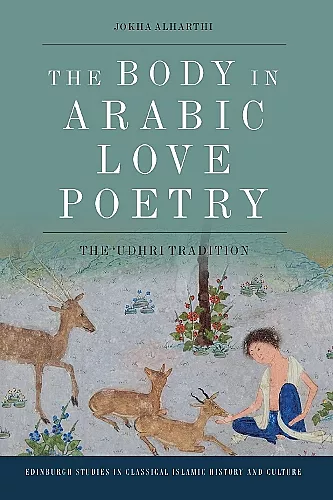The Body in Arabic Love Poetry
The ‘Udhri Tradition
Format:Paperback
Publisher:Edinburgh University Press
Published:25th Jan '23
Currently unavailable, our supplier has not provided us a restock date

Jokha Alharthi re-appraises the relationship between love, poetry and Arab society in the 8th to 11th centuries. She avoids familiar clichés about the purity of love in ‘Udhri poetry – broadly speaking, an Arabic counterpart to the western medieval concept of unconsummated courtly love – and instead questions the traditional much-vaunted emphasis on chastity and the assumption that this poetry omits any concept of the body. Alharthi focuses on the key differences between what the poetry itself says and the views of later sources about ‘Udhri poets and their works. She also documents how the representation of the beloved in the ‘Udhri ghazal was influenced by pre-Islamic poetry, showing how this tradition developed with a series of overlapping historical layers. And she breaks new ground by examining how this poetry treats not only the body of the beloved but also that of her lover, the poet himself.
Samira Aghacy has written an interesting book that fills a gap in criticism of contemporary Arabic literature. At a time when ageing has become a major socio-economic issue, Arab male and female writers are addressing the proliferating roles of the elderly and how attitudes to them are changing. This book analyses sixteen Arabic novels from Lebanon, Syria, Iraq, Palestine, Egypt, and Tunisia to demonstrate that there is no single model of old age either in society or in literature. In so doing, it contributes to an appreciation of the ways in which fiction opens up new vistas on occluded subjects. * miriam cooke, Duke University *
ISBN: 9781474486347
Dimensions: unknown
Weight: unknown
288 pages